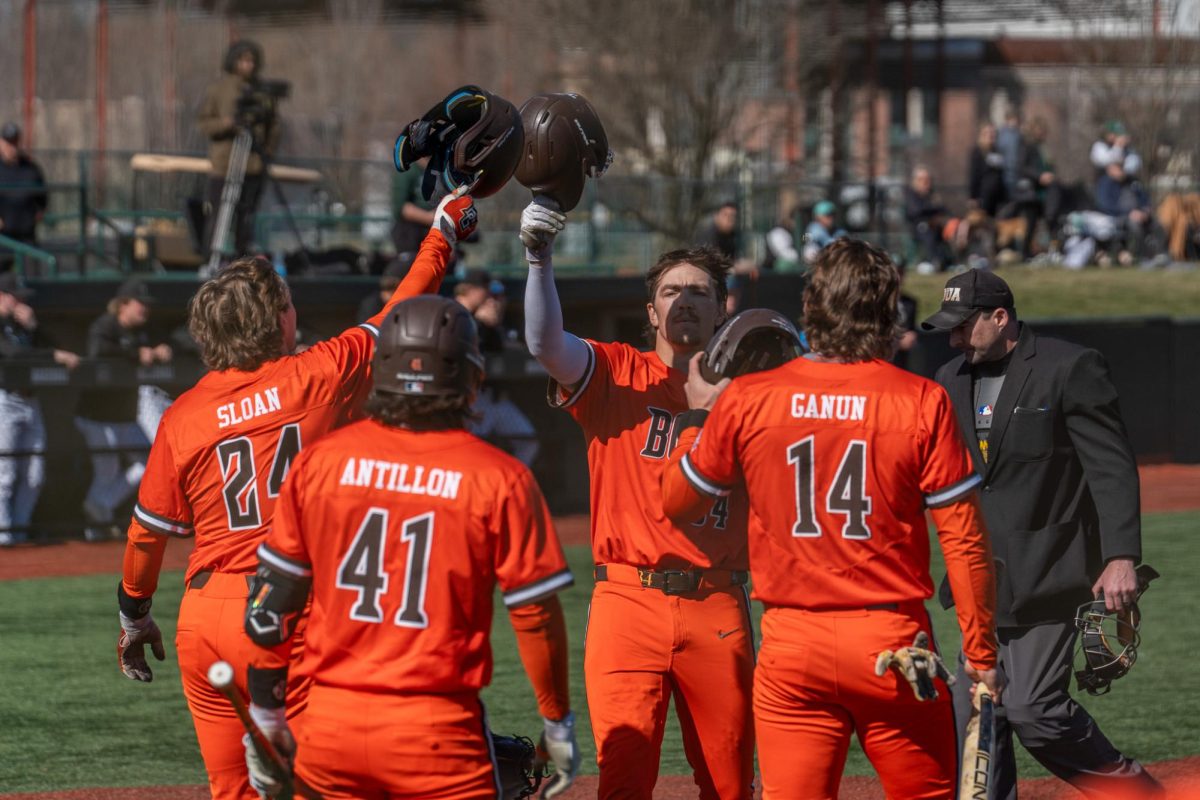“Wait a minute. I can write anything I want on the wall, even something vulgar?”
I wish I could say that I was surprised by the student’s question, but it was one I heard multiple times on Monday, when the University’s Young Americans for Liberty chapter hosted its free speech event. If you were near the Union on Monday, you may have seen the free speech wall, which was open for everyone to speak their mind.
You might expect free expression to be in abundance at a university. This isn’t always the case.
This past year, an attempt was made to curb students’ rights on campus when a petition was circulated to effectively increase restrictions on the University’s limited free speech zones.
The initiative began as something that many students could get behind: banning the confrontational evangelist from campus. For some students he’s offensive. For others, he’s merely annoying. Any measure that made the short walk to class a little less obnoxious was worth the signature.
The inclination never grew into anything serious; for what would have become of the simultaneous abortion protests that took place?
The pictures of fetuses and unborn babies were egregious and horrifying, but that was exactly the sentiment the group Created Equal wished to instill in students. Many students complained about what they saw, but something much more important happened that day. The feminist organization on campus concerned with women-empowerment held a counter-protest, in which they also conveyed their opinions on the issue.
Throughout the week, letters were sent to the editor, columns were written, signs were painted and most importantly, conversations were started.
As the good doctor Ron Paul said, “We don’t have freedom of speech to talk about the weather. We have the first amendment so we can say very controversial things.”
Coincidentally, Banned Books Week takes place this week.
This annual celebration is designed to emphasize the freedom to read, free from censorship.
Of course, censorship effects books like “Captain Underpants” and “Fifty Shades of Grey,” but remember that such classics as “The Adventures of Huckleberry Finn,” “To Kill a Mockingbird” and even “The Catcher in the Rye” were also banned in libraries and schools.
For free expression to truly be free, all expression must be permissible.
One of my life-long favorite quotes comes from the author Franz Kafka. He writes, “I think we ought to read only the kind of books that wound and stab us. … A book must be the axe for the frozen sea inside us.”
I view free speech in much the same light as I do censored literature. Make the deplorable remarks fall on educated ears. Drown the poor speech with more speech. We maintain the right to speak our mind for those instances when it is most controversial, for those are the ideas that truly shape our world and change history.













